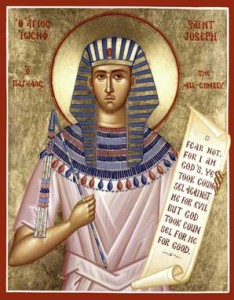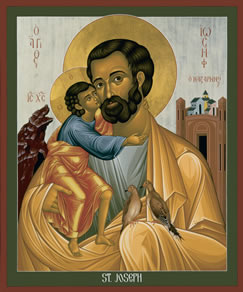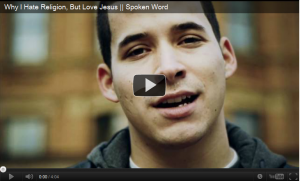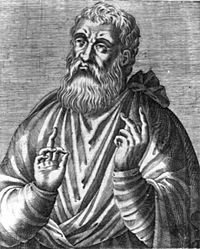The Two Josephs
As I mentioned before, I’m currently working my way through St. Matthew’s Gospel. I was reading a commentary the other day where it noted the parallels between the two main Josephs in the Bible:
Joseph #1

The first Joseph is the Joseph of the Old Testament.
This Joseph was the one who had dreams and was sold into slavery by his own brothers (Genesis 37:28). When he resisted the advances of his master’s wife he was falsely accused and thrown into prison. Fortunately, because he could interpret the Pharaoh’s dreams (Genesis 41:1-36) he later ascended to the role of Prime Minister (Genesis 41:39-40).
Later, during a great famine, Joseph’s brothers come to Egypt to buy grain. After testing their hearts (Genesis 44), Joseph responds with mercy and brings his whole family to live with him (Genesis 47:11-12)
Joseph #2

The second Joseph is the Joseph of the New Testament.
This is St. Joseph, the man who was betrothed to Mary (Matthew 1:19). When he found out that Mary was pregnant, he considered divorcing her. However, after an angel appeared to him in a dream, he resolved to take her as his wife and become the foster father of Jesus (Matthew 1:20-25).
After Jesus’ birth, St. Joseph receives another dream warning him of Herod’s plan to kill Jesus so he takes his wife and son to Egypt. Eventually he brings his family back and settles them in Galilee (Matthew 2:20-23).
Most people assume that St. Joseph died prior to the beginning of Jesus’ public ministry since he is not mentioned during that time.
Now, the parallels…
Parallel Lives
Here are the parallels offered by my commentary:
1. Both have fathers named Jacob (Matthew 1:16 and Genesis 30:22-24)
2. Both received dreams from God (Matthew 1:20-21 and Genesis 37:5-11)
3. Both where righteous and chaste (Matthew 1:19 and Genesis 39:7-18)
4. Both saved their families by taking them to Egypt (Matthew 2:13 and Genesis 45:16-20)
Some of these parallels are stronger than others, but noteworthy nonetheless!
 In the
In the  The following question is asked by the artist on the YouTube video
The following question is asked by the artist on the YouTube video  Yesterday I published a
Yesterday I published a 